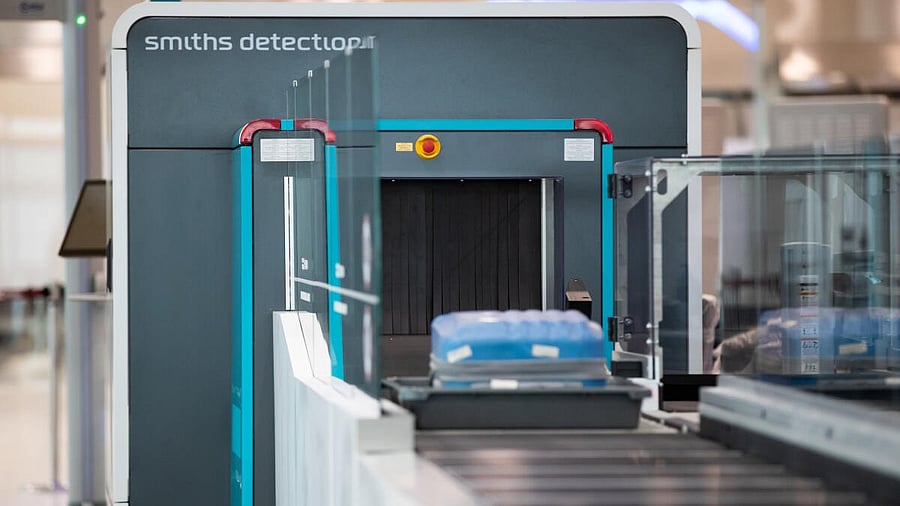
Smiths Detection scanner.
Credit: Smiths Detection
Global threat detection and security screening technologies major Smiths Detection today launched its HI-SCAN 6040 CTiX, an advanced cabin baggage screening system based on Computed Tomography (CT) technology, for the Indian market.
The announcement follows the advisory by the aviation security watchdog, Bureau of Civil Aviation Security (BCAS) that mandated operators of all airports handling 50 lakh and more annually to install 3-D computed tomography X-ray (CTX) machines at pre-departure security checkpoints for cabin bag checks by December 31, 2023, after the massive overcrowding seen in Indian airports in December last year as the country recorded the highest number of domestic travellers since Covid-19 pandemic.
With this, passengers will no longer have to place electronic devices, chargers, and liquids, among other items, into separate trays outside of their carry-on baggage, something that has to be done with the currently deployed 2-D X-ray scanning system at airports in India leading to wild scramble for trays. The CT scanner will generate 3D volumetric images which allow operators to analyse a bag’s contents more accurately while significantly increasing the checkpoint throughput.
“Airports cannot suddenly increase their capacity. This technology will allow airports to do so at lower operating costs,” Vikrant Trilokekar, Managing Director of India, Smiths Detection told DH in an exclusive interaction. “Looking at the major airports and the security checkpoints today, we will be delivering 200-300 machines over the next five years,” he further added.
The company has already carried out structured trials in Bengaluru, Mumbai and Delhi airports over the last 16 months. Prior to India, the company has already sold 1000 machines operational in airports throughout the UK (including Edinburgh and Heathrow), Australia, New Zealand, USA, Kuwait amongst others and have resulted in up to 50% reduction in waiting times.
Not disclosing the investment figures, Trilokekar said “The investment for this equipment will come from airports and will depend on their security and operational needs and requirements.”
It had recently signed an agreement with Noida International Airport for supplying both passenger and hold baggage screening equipment. “We will start deliveries in early 2024,” Trilokekar said, adding that existing major airports will have to upgrade and the timelines for deliveries will be dictated by operators.
The company, which has been the major player providing screening equipment in Indian airports for over 20 years, is seeking partnerships to develop high-intensity X-ray scanners in India. “India is a strategically important market for Smiths. In addition, as the country does more trade, cargo at ports needs to be effectively and efficiently screened. We’ll be seeking to continue our partnerships with the Government of India and key customers like airports and customs for the same,” Trilokekar added.